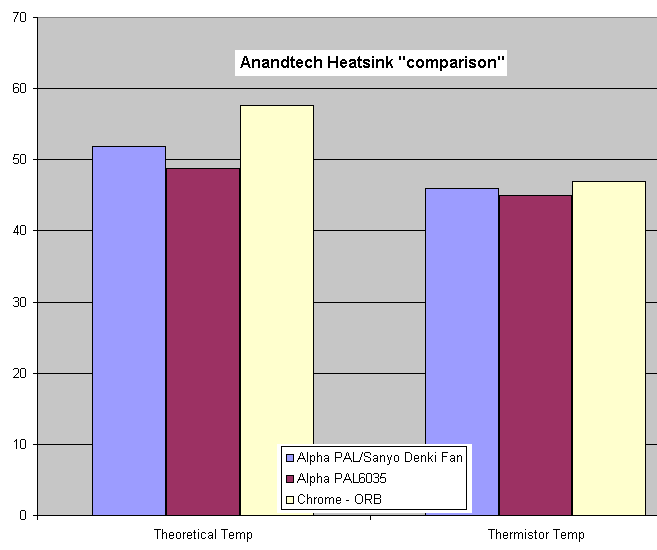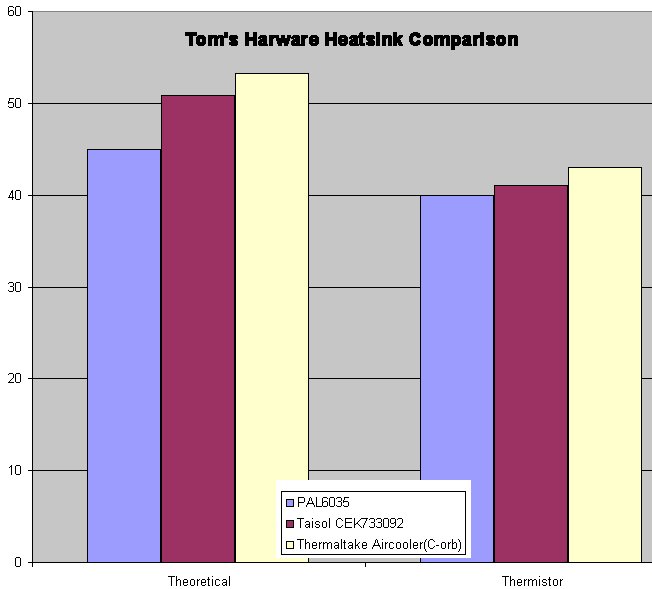|
|
|
II. Compression of Thermistor Readings
Explained, With Examples from Web-Reviews
Examing Web reviews, I'm going to use 3 very popular heatsinks, all of which
have numerous web-"reviews" available to reference from: The Alpha
PAL6035, Taisol CEK733092, and Thermaltake Chrome-Orb. Keep in mind that all
theoretical temps are exactly that, theoretical... They are based on large portions
of CPU W going through the primary heat pathway, and good cpu-heatsink connections.
The first examples of compression will come from the Anandtech Heatsink "Comparison". Since they do not test the taisol unit, we'll just be looking at alpha and thermaltake temps.

Seeing the Anandtech comparison numbers, one can see that the Alpha PAL6035/Delta Fan"read" temps of 45C are approximately close enough to the theoretical temps of 47C to not be worrisome. The situation gets a bit worse with the PAL6035/Sanyo Denki fan, where the difference from theoretical to "read" temps expands to 5C. Then teh situation gets extremely bad with the Chrome Orb. With an Estimated Thermal Resistance of (C/W) .52(note: This number on an unlapped C-orb is significantly higher), the C-orb "read" versus theoretical temp difference jumps to some 12C.
The end results is a confusing heatsink "roundup" that leads viewers to believe that the Chrome Orb is just as good as the Alpha's and is much cheaper? Relying on socket-thermistor readings, any person would come to that conclusion. However, if we were able to measure core temps, the difference would be much greater, and the orb would no longer seem like such a good heatsink. Its interesting to note that in this particular "review" that several heatsink all fall within the 45-47C read temp range, whereas actual core temp probably spread out from 47C to 60-65C. Major compression abound that really limit the effectiveness of this type of heatsink comparison.
The next comparison I will look at is the "TomsHardware Comparison". This time, the comparison has all 3 heatsinks in the roundup.

This review exhibits the same problem as the Anandtech review, a major compression of temperature changes. Another new factor is the unpredicatability of socket-thermistor readings: The compression has the potential to vary. The other problem is that socket-thermistors are wildly unpredicatable, and in some cases will read temps higher than theoretical core temp. How that happens is really up in the air.
Socket-Thermistor Under-Reads and why MB Compensation is inadequate